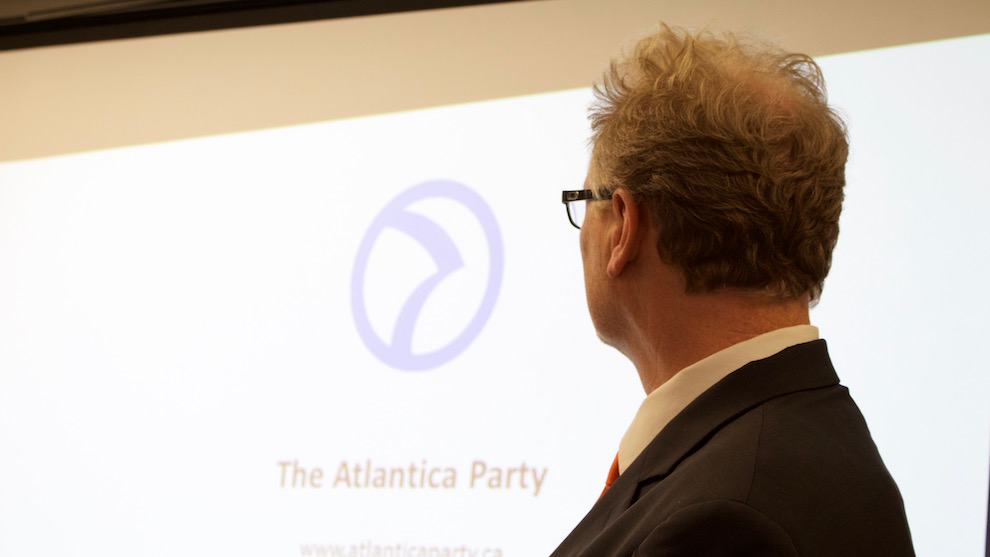Politics
Atlantica Party: Nova Scotia’s fifth registered political party
The Atlantica Party hopes to field candidates in the next provincial election

caption
Jonathan Dean, Atlantica Party leader.
caption
Jonathan Dean, Atlantica Party leader.The Atlantica Party, Nova Scotia’s fifth registered political party, wants to challenge what it calls the “status quo” — Conservatives, Liberals and NDP — and overhaul Nova Scotia’s political system, says its leader, Jonathan Dean.
The party’s goals include lowering taxes, stopping taxpayer money from flowing into private interests and making it illegal to run deficits. Atlantica also wants to make MLAs recallable and end secret voting in the legislature.
The party has not yet developed policies on other core issues like education or health care.
Atlantica was co-founded in 2009 by Dean after he came back to Halifax from living in Toronto for a decade. He quickly decided that Nova Scotia was in trouble.
In Dean’s eyes, the government was spending money and creating debt at an unsustainable rate, and democracy was failing.
“We were frustrated with the lack of action and the lack of leadership and the lack of vision in the status quo,” said Dean, who works in investment research.
“Nova Scotia is this backwater and it’s just dying. Somebody has to do something.”
Dean ran as an Independent in the 2009 provincial election, and other party members ran as Independents in 2013. Atlantica was a registered party in 2010, but registration was revoked in 2012 for failure to file 2011 annual reports.
Atlantica was registered again this June as a political party.
Over the past seven years, the libertarian-leaning party has slowly built support. Now, Atlantica has 75 members and around 2,000 to 3,000 supporters, says the party’s leader.
“We’re basically starting from nothing. We’re all volunteers with families and jobs and we do this on our own time,” said Dean. “It’s not something that just happens in a couple of meetings.”
‘Daunting challenges’
Graham Steele, CBC political analyst and former NDP finance minister, says most people underestimate how many resources it takes to attract voters.
“It is formidably difficult to form a new political party,” he said.
Steele questions the Atlantica party’s financial platform. “(Atlantica’s policies) do not show a deep understanding of how finance works or how government spending works,” he said.
“People can mean well, but not be able to generate sensible policies,” Steele said. “I question whether starting a small party is the best way to address problems in Nova Scotia politics.”
New political parties are formed regularly in Canada, but it is rather new for Nova Scotia. The NDP was only established in 1961, and the Green party in 2006. Before that, Conservatives and Liberals had battled in a two-party system since before Confederation.
“It’s just Nova Scotia and the Maritimes catching up to the rest of Canada,” said Louise Carbert, a professor who teaches elections and Canadian politics at Dalhousie University.
Carbert said forming new parties is a “healthy” part of Canadian politics and a way “that Canadian politics is reinvigorated and renewed.”
But Carbert is doubtful that Atlantica will be able to generate enough support to run candidates.
“(Dean) has got some daunting challenges ahead,” said Carbert. “The Liberals, the NDP, the PC … all three of those parties have problems finding candidates in certain parts of the province. They’re digging deep.”

caption
Jonathan Dean with the Atlantica Party’s logo behind him.Dean plans to run at least 12 candidates in the next provincial election. The party is mainly member funded, but also receives donations from supporters.
“There’s a tremendous appetite for change out there,” he said. “Our biggest enemy is apathy, which the other parties face as well.”


S
Sarah Adams